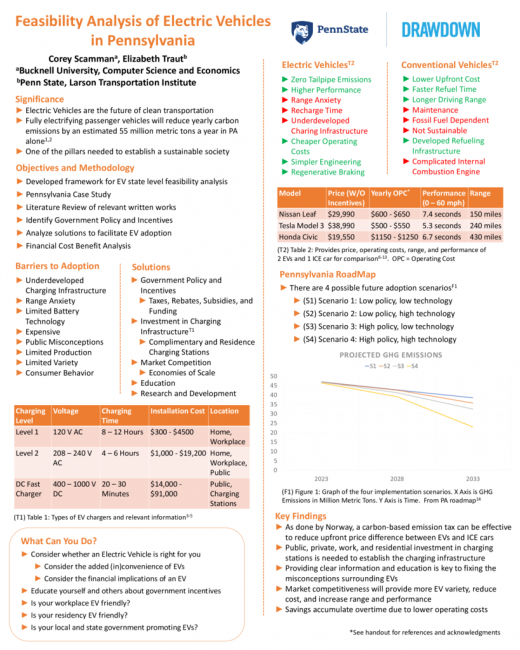There are 12 million cars in Pennsylvania and 99% of those are conventional vehicles which emit greenhouse gases. Collectively, these cars emit an estimated annual 55 million metric tons of CO # and other harmful gases. The wide scale electrification of passenger vehicles in our society is a promising solution to reduce these emissions. This study presents a state level feasibility assessment framework that can be applied to all states and a case study focusing on Pennsylvania. We analyze barriers to the mainstream adoption of electric vehicles and identify solutions to circumvent these obstacles in areas such as government policy, public perception, financial cost, and the market. Moving forward, there are multiple possible scenarios of implementation dependent upon the cooperation of the government and the free market. Assuming the number of cars stays constant, if EVs can make up 50% of all passenger vehicles by 2040, we can reduce annual greenhouse gas emissions to 27.7 million metric tons. Should electric vehicles become the standard for passenger vehicles in combination with increasing green energy production, our society will take a significant step toward sustainability.
Day
Monday Poster Session
Related Conference Themes
Built Environment
Transportation


